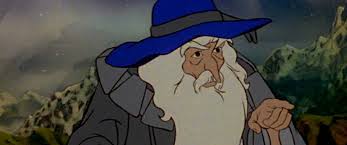A man who has gone out of his town comes back and finds that his house is on fire. It was one of the most beautiful houses in the town, and the man loved the house the most! Many were ready to give a double price for the house, but he had never agreed for any price and now it is just burning before his eyes. And thousands of people have gathered, but nothing can be done, the fire has spread so far that even if you try to put it out, nothing will be saved. So he became very sad.
Մի մարդ օրը գնացել էր քաղաքից դուրս, վերադառնում է քաղաք և տեսնում, որ իր տունը վառվում է: Դա քաղաքի ամենագեղեցիկ տներից մեկն էր, և այդ մարդը շատ էր սիրում այդ տունը! Շատերը պարտաստ էին կրկնակի վճարել տան համար, բայց նա ոչ մեկին չէր տալիս այդ հնարավորությունը, իսկ հիմա այդ տունը վառվում է իր աչքերի դիմաց: Հավաքվեցին հարյուրավոր մարդիկ, բայց ոչինչ չի հնարավոր չէր անել,կրակը տարածվել էր այնքան,որ նույնիսկ եթե փորձեիր հանել այն,ոչինչ չէր փրկվի: Ուստի նա տխրեց:
His son comes running and whispers something in his ear, “Don’t be worried. I sold it yesterday and at a very good price. The offer was so good, I could not wait for you. Forgive me.”
Նրա տղան վազելով եկավ և սկսեց մի բան շնշնջալ իր ականջին, ՙՙՄի մտածիր. Ես վաճառել եմ այդ տունը երեկ, և շատ լավ գնով. Պատվերը այնքան լավն էր, որ ես քեզ չսպասեցի: Ներիր ինձ.՚՚
The Father said, “thank God, it’s not ours now!” Then he became relaxed and stood as a silent watcher, just like 1000s of other watchers.
Հայրը ասում է, ՙՙՇնորհակալություն աստված, որ սա էլ մերը չէ՚՚. Հետո նա լռեց և սկսեց լուռ դիտել, ինչպես մնացած 1000 դիտողները:
Then the second son comes running, and he says to the father, “What are you doing? the house is on fire and you are only watching it burn?” The father said, “Don’t you know, your brother has sold it.”
Հետո վազելով գալիս է երկրորդ ՙՙԻնչես անու՞մ. Տունը վառվում է իսկ դուք կանգնած նայում ե՞ք՚՚ հայրը ասում ՙՙ Դու չգիտես, քո եղբայրը այն վաճառել է՚՚
He said, “we have taken only advance amount, not settled fully. I doubt now that the man is going to purchase it now.”
Նա ասում է ՙՙՄենք վերցրել ենք փողի կեսը, իսկ մնացածը նա պետք է հլը տար, իսկ հիմա ես համոզված չեմ որ այդ մարդը կտա փողը՚՚
Tears which had disappeared came back to the father’s eyes, his heart started to beat fast. And then the third son comes, and he says, “That man is a man of his word. I have just come from him.” He said, “It doesn’t matter whether the house is burnt or not, it is mine. And I am going to pay the price that I have settled for. Neither you knew, nor I knew that the house would catch on fire.”
Արցունքները որոնք անհետացել էին հոր աչկերից վերադարցան: Նրա սիրտը սկսեց ավելի արագ աշխատել: Իսկ հետո գալիս է երրորդ տղան և ասում ՙՙԱյդ մարդը խոսքի տերն է, ես հենց նոր նրա մոտից եմ գալիս նա ասաց՚՚ ՙՙԻնչ չի հետաքրքրում, տունը վառվել է թե չէ, նա իմն է: Եվ ես կտամ այնքան ինչքան խոստացել եմ և ես կվճարեմ: Դուք չգիտէիք, ես չգիտէի, որը տունը կվառվի՚՚
Then all just stood and watched the house burn without a worry.
Դրանից հետո, նա կանգնած նայում էր տաննը:
This is a very complicated human nature to describe. Even though person here loved his house which he lost, became relaxed knowing it was not his anymore. He never wanted to give it away till it was beautiful but, as soon as it started to lose its beauty, he didn’t mind letting it go for a profit. Sorrow and Happiness followed after each son came with their advice. But, most important thing to understand is, how his feeling changed. How the ratio of loss and profit changed his feelings towards a house, which he loved the most. This is how in present time we have come to give a priority to our relations and friendship – based on loss or profit ratio. Everyone should understand this story and put their own moral.
Սա նկարագրում է շատ բարդ մարդկային բնույթ: Չնայած նրան, որ այստեղ մարդը սիրում էր իր տունը, որը նա կորցրեց, դարձավ հանգիստ, իմանալով, որ այն այլեւս չէր: Նա երբեք չի ցանկացել տալ այն, մինչեւ որ գեղեցիկ էր, բայց հենց որ սկսեց կորցնել իր գեղեցկությունը, նա դեմ չէ, որ դա շահույթ չտա: Վախը եւ երջանկությունը հետեւեցին յուրաքանչյուր որդու, իրենց խորհուրդներով: Բայց ամենակարեւորը հասկանալն է, թե ինչպես էր նրա զգացմունքները փոխվել: Ինչպես կորստի եւ շահույթի հարաբերակցությունը փոխեց իր զգացմունքները մի տուն, որն ամենից շատ էր սիրում: Այսպիսով, այս պահին մենք եկել ենք առաջնահերթություն մեր հարաբերություններին եւ բարեկամությանը `կորստի կամ շահույթի հարաբերակցության վրա: Յուրաքանչյուր ոք պետք է հասկանա այս պատմությունը եւ դրեց իր բարոյականությունը:
Հեղինակ՝ Ջուլիա Ստեփանյան

